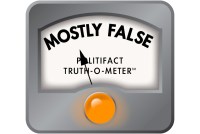Latest KFF Health News Stories
Biden’s Promise of Better Nursing Home Care Will Require Many More Workers
The president wants to set minimum staffing levels for the beleaguered nursing home industry. But, given a lack of transparency surrounding the industry’s finances, it’s a mystery how facilities will shoulder the added costs.
Inside the Tactical Tug of War Over the Controversial Alzheimer’s Drug
An epic battle is playing out behind the scenes over whether the government should pay for Aduhelm, an FDA-approved Alzheimer’s drug that scientists say has not been proven to work.
Why Millions on Medicaid Are at Risk of Losing Coverage in the Months Ahead
State Medicaid agencies for months have been preparing for the end of a federal mandate that has prevented states from removing people from the safety-net program during the pandemic.
KHN’s ‘What the Health?’: FDA Takes Center Stage
Congress is set to start its once-every-five-years review of the law that authorizes user fees to finance the hiring of personnel to speed the FDA review of drugs. The periodic renewals of “PDUFA” also give lawmakers a chance to make other changes to the agency at the hub of the pandemic. Meanwhile, the FDA could also find itself at the center of the abortion debate and a controversial new medication to treat Alzheimer’s disease. Anna Edney of Bloomberg News, Joanne Kenen of the Johns Hopkins Bloomberg School of Public Health and Politico, and Sarah Karlin-Smith of the Pink Sheet join KHN’s Julie Rovner to discuss these issues and more.
Skirmish Between Biden and Red States Over Medicaid Leaves Enrollees in the Balance
The Biden administration is getting rid of several policies implemented by Trump-era appointees that restricted enrollment. Federal officials now say states can no longer charge premiums to low-income residents enrolled in Medicaid and have ruled out work requirements.
Health Care Paradox: Medicare Penalizes Dozens of Hospitals It Also Gives Five Stars
Among the 764 hospitals hit with a 1% reduction in Medicare payments this year for having high numbers of patient infections and avoidable complications are more than three dozen that Medicare also ranks as among the best in the country.
At Nursing Homes, Long Waits for Results Render Covid Tests ‘Useless’
As omicron surges, more nursing homes are facing a double whammy: Lab tests are taking too long, and fast antigen tests are in short supply.
Medicare Patients Win the Right to Appeal Gap in Nursing Home Coverage
If federal officials accept a court’s decision, some patients will get a chance to seek refunds for their nursing home and other expenses.
Families Complain as States Require Covid Testing for Nursing Home Visits
Relatives say it is important they be allowed to go into nursing homes because staff shortages are affecting care. And many are still upset about lengthy separations from loved ones during lockdowns earlier in the pandemic.
Muchos familiares dicen que no pueden conseguir las pruebas ante la enorme demanda y la escasez de suministros, lo que les impide ver a sus seres queridos.
Supreme Court Weighs Biden’s Workplace Vaccine Requirements
The court is considering whether to let the rules go into effect as opponents fight them in lower courts. Conservative justices pressed lawyers hard about whether the administration overstepped its authority, but liberal members of the high court questioned why the government shouldn’t be expected to move forcefully when facing a severe health crisis.
‘The Charges Seem Crazy’: Hospitals Impose a ‘Facility Fee’ — For a Video Visit
Facility fees, designed to help hospitals cover the high cost of staying open 24/7, have long rankled consumers. Now, some patients are assessed the fees while sitting at home for a telehealth appointment.
After ‘Truly Appalling’ Death Toll in Nursing Homes, California Rethinks Their Funding
California wants to hold nursing homes accountable for the quality of care they provide by tying Medicaid funding more directly to performance. But the nursing home industry, an influential player in the Capitol, is gearing up for a fight.
Post-Pandemic, What’s a Phone Call From Your Physician Worth?
Medicare billing codes for audio-only follow-up check-ins lead to new reimbursement battles.
Florida Sen. Rick Scott Off Base in Claim That Rise in Medicare Premiums Is Due to Inflation
The Republican senator says President Joe Biden’s “inflation crisis” caused Medicare to raise monthly premiums, which will add hundreds of dollars to beneficiaries’ costs. But Medicare experts say inflation was not to blame and most beneficiaries will shoulder a much smaller increase than what Rick Scott claims.
La inscripción de Medicare es temporada abierta para estafadores
Funcionarios federales dicen que están aumentando las quejas de personas mayores engañadas para que compren pólizas sin su consentimiento, o atraídas por información cuestionable, que pueden no cubrir sus medicamentos ni incluir a sus médicos.
Medicare’s Open Enrollment Is Open Season for Scammers
Medicare officials say complaints are rising from seniors lured into private plans with misleading information or enrolled without their consent. In response, officials have threatened to penalize the private companies selling Medicare Advantage and drug plans if they or agents working on their behalf mislead consumers.
Researcher: Medicare Advantage Plans Costing Billions More Than They Should
Some insurers pocketed ‘eye-popping’ overpayments, billing records show.
Public Health Experts ‘Flabbergasted’ That Biden Still Hasn’t Picked an FDA Chief
The Food and Drug Administration has been mired in controversies related to drug approvals and covid vaccines, all without a permanent leader.
The Solution to Au Pairs’ Health Coverage Gaps May Be Simple: ACA Plans
Private agencies that bring young adults to the U.S. to care for children generally offer basic health insurance, but plans may exclude many types of necessary care. What the agencies might not mention is that au pairs are eligible to enroll in comprehensive coverage on the Affordable Care Act marketplaces and likely qualify for premium subsidies that would make the insurance affordable.
























